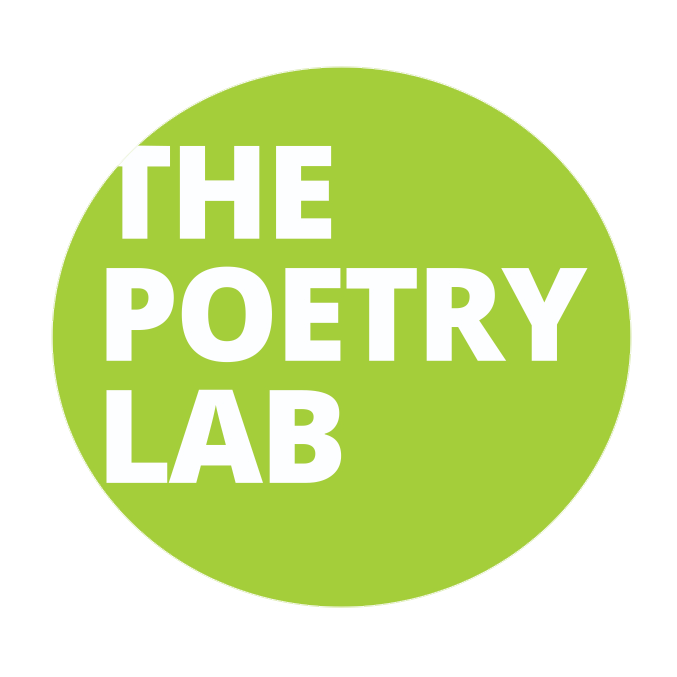
Writing Poetry as a Path to Liberation
REBECCA HIRAHETAINSPIRATION 101
GO BACK TO THE RESOURCE CENTER >
My name is Rebecca Hiraheta and I’m a Salvadoran-American poet and writer from Orange County, California. Before the pandemic, I was organizing alongside other amazing poets in my local community under the group The Real Poets of OC. I write about love, identity, and the near colonization of my body. I’m particularly passionate about bilingualism, as it is a large part of how I experiment in poetic craft. I also write about the subject of colonialism and its complexities as it relates to my body, which is one of the main subjects my poetry has been inspired by. Recently, I self-published my bilingual chapbook Vos Sos and started a Tumblr blog where I talk about the intersections and nuances about indigenous identity, indigenous theory, prison abolition, and the prison industrial complex.
After I started college, I found a marked difference between times when I was writing essays, journalism articles, and other assignments, and times when I was writing poetry. My essays were influenced by the techniques I was experimenting with in my poetry. Seeing this contrast, I began to consider the usefulness of poetry, that the tactics I was using in my poems could help clarify my writing in general. This article explores that discovery…
How Poetry StrengthENs Choice
Diction — meaning: word choice— is a boring term, but it’s important when we want to write compelling non-fiction pieces like essays, journalism articles, or blog posts. In my experience, poetry demands strong, intentional, and creative word choices in order for a poem to come to life. The case has been made that poetry improves fictional prose, but it also improves all non-fiction writing. My college newspaper articles were enticing to our readers because of the imagery I evoked through my word choice. Reader engagement increased as I painted images in my readers’ minds that excited them. My eyes were opened to how non-fiction doesn’t have to be dull just because it’s factual. Taking these types of risks will create a strong voice behind your writing and make you stand out above typically bland non-fiction.
In her essay “How Studying Poetry Made Me a Better Writer” Tania Strauss writes:
“Because poems usually use so many fewer words than stories and essays, each word must do as much work as possible and as such must be very carefully chosen... As a writer of any kind at all, you need to communicate as effectively and precisely as possible with your reader, and your number one communication tool isn’t character, or plot, or setting, or underlying thematic material – it’s the language you’re writing in.”
If you’re practicing your poetry craft—word choice, syntax, image and metaphor, economy of language—then every writing task you undertake will come more naturally to you. Experimenting with poetry tactics allows your work to stand out in ways that are not only beneficial, but also really fun and exciting! Plus! It helps you to develop your voice across your writing as a whole.
How We Make Meaning Through Poetry
What I find really freeing about writing poetry is that the structure of a poem is no set thing and many rules are meant to be broken. Poetic modes such as praise song, elegy, ode are used over and over again, but do not have strict rules, which means we can invent new uses for the old modes. We can improvise and make improvements (such as Terrance Hayes’ American sonnets). This element of play makes poetry more accessible, and with practice, play can morph into a good way to help organize your thoughts. In time, you may start to think in poetry.
In school, we were taught a method for writing that doesn’t feel natural; we were taught three-pong essays, topic sentences, concluding paragraphs. Writing an essay, journal article, or blog post doesn’t need to feel like plugging sentences into the formula of a math equation. Poetry is a way to break free. When you study poetic forms, think of new ways to structure your writing, use unusual rhythms, refrains, or sequences to break free of old traditions and get new details across to your reader.
For Example, Night Sky with Exit Wounds by Ocean Vuong has a poem titled “Seventh Circle of Earth” where they wrote a prose poem in a footnote form, but with the numbers zig-zagged across the page.
Andres Simmons agrees:
“students who don’t like writing essays may like poetry, with its dearth of fixed rules and its kinship with rap. For these students, poetry can become a gateway to other forms of writing. It can help teach skills that come in handy with other kinds of writing…Students can learn how to utilize grammar in their own writing by studying how poets do—and do not—abide by traditional writing rules in their work. Poetry can teach writing and grammar conventions by showing what happens when poets strip them away or pervert them for effect…”
This is the value of poetry outside of poetry. Writing poetry will help you with the process of experimenting in your own writing. Writing poetry will help you develop your voice as a writer. Writing poetry will help you rule-break. For me, poetry is where I go when I have to communicate something without too many restrictions.
Poetry and Liberation
Everyone can and should write poetry. I don’t think this just because I am a poet, but because writing poetry is the most liberated form of writing.
You can make almost anything into a poem.
Any feeling, any moment, and any story can become a poem. Once, Melissa Lozada-Oliva said someone losing a balloon to the sky is a poem. It reminds me of this short love poem by Zachary Schomburg:
Falling in Love with the Death Thought
Falling in love with the death thought is a way of never really dying. You let an idea hold you in its real arms. This is how you love: you try over and over again to throw a red balloon across the river from a tree.
ZACHARY SCHOMBURG, Fjords Vol. 1 The subject matter of your writing doesn’t need to be serious or even logical to help you break free. Back to Ocean Vuong, who used that lyrical mode I mentioned before, the ode, to write “Ode to Masturbation.” Watch them read it:
Just because a mode, style, or form as been around for a long time doesn’t mean it can’t be flipped around to fit the modern moment. So think of poetry as a way to practice self-expression through words and let your voice ring true!
🔻 Try it out!
One of the quickest ways to excite your writing, whether it be fiction, essay, or poem is to enliven your verbs.
1) Off the top of your head, make a list of 15 verbs, here’s a few to get you started:
smack
hex
gurgle
crash
trample
bounce, etc…
2) Using a red pen circle all of the verbs in your piece.
3) Now, using the new list of verbs you created, what can you replace?
She walked to the park.
Could become:
She trampled daisies to the park.
This article was published on February 21, 2022. Written by:


